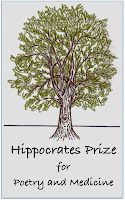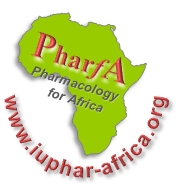Aspirin has been reported to have the potential to prevent selected cancers of the digestive tract. Aspirin also reduces the risk of serious vascular diseases in patients already at higher risk of them. A team led by researchers from the University of London has published their assessment of the risks and benefits of aspirin by analysing previous reports of the effects of aspirin.
Aspirin is a powerful drug with powerful adverse effects, including bleeding into the digestive tract or brain, causing some forms of asthma, exacerbating gout and causing rare but serious complications in children under 16 years of age ...
See more on this in Spanish on the BBC World Service website.
Below is an English version of the BBC World Service report:
"
Myth and reality of aspirin to prevent disease
Writing
BBC Mundo
Aspirin is one of the world's best selling
drugs. More than two thousand years ago, Hippocrates, the Father of Medicine,
discovered the active ingredient in aspirin, which he extracted from the willow
plant, and used to soothe fevers and headaches.
But it was not until 1897 that the German Felix Hoffman developed the
drug as such. More than a century later, aspirin, acetylsalicylic acid, is one
of 10 generic best sellers in the world, with annual sales of about $ 1.7
billion.
Besides being a recognized analgesic, aspirin has gained ground as way to
prevent certain diseases. Multiple studies have highlighted its benefits in
preventing cardiovascular disease and various cancers.
However, taking aspirin regularly involves significant risks. BBC News spoke to
several experts to discuss how and when it is advisable to take a dose of this medicine
each day.
Cardiovascular
Benefits
Taking a daily dose of aspirin is a method
widely used to prevent cardiovascular disease in people who have had this
disorder already.
Mike Knapton, associate medical director at the BHF, told the BBC that
for people who have had heart attacks, angina, some types of stroke and
diseases of the arteries, a low dose of aspirin a day can prevent the
occurrence of new episodes. This practice is well established and several
studies have demonstrated these benefits.
The reason is that aspirin inhibits platelet adhesion in blood vessels reducing
blood clotting. But research also points
that the drug may not prevent cardiovascular events in healthy people. Rather, "the risks of taking a daily
dose of aspirin outweigh the benefits of taking it in the case of people who
have never had this kind of disorders," said Dr. Mike Knapton.
Reduction
of cancer
In recent years, several
studies have also pointed to the benefits of the drug as a way to prevent
certain types of cancer. Experts also point out that aspirin increases
the risk of bleeding. In fact, Peter Elwood, a British expert who
participated in the scientific team that first showed the benefits of this
analgesic in cardiovascular disease states that "the future is aspirin in
reducing certain types of cancer."
Recent research by Queen Mary University of London, argues that for people
between 50 and 65 years, a dose of daily aspirin can significantly reduce the
risk of developing colon, esophageal and stomach cancer.
"This study showed a 35% reduction in cases of colon cancer and 40% in the
number of deaths from this disease," Julie Sharp, Director of the Health Information
Department of the British charity Cancer Research UK told the BBC.
"In relation to stomach cancer and esophagus, a reduction of 30% in the
number of cases and between 35% and 50% in deaths was recorded, "said the expert.
The study recommends that people between 50 and 65 take a dose of 75 and 100
grams of aspirin for at least 5 years, preferably 10 years.
Significant
risks
But some studies in the UK have indicated
that in some cases, taking the drug may have more risks than benefits. One of
the side effects of this drug is the possibility of internal bleeding,
including brain. Experts agree that a daily dose of aspirin helps prevent
cardiovascular problems in people who already suffer from these disorders.
As he explained to the BBC, Donald Singer,
professor of clinical pharmacology in the department of medicine at Yale
University in the United States, "as a result of its blood thinning
effect, aspirin can cause bleeding, for example in people who have a stomach or
intestinal ulcer, and in some cases it can also cause bleeding in the brain.
"
Research from Queen Mary University of London
recognizes these risks and stresses that in the case of persons 60 years of age
who take a daily dose of aspirin for 10 years, the risk of bleeding in the
digestive tract increased from 2.2% to 3.6%, and in a small proportion of these
cases (5%), can lead to death. " It is important that in each patient assessment
is done to establish who can take aspirin and who should not".
Julie Sharp, of the British charity Cancer
Research UK said the risk increases significantly for people over 70 years.
But to
what extent do the risks outweigh the benefits of aspirin?
Here is a point on which not all experts
agree. "I have no doubt that the balance is in favor of taking aspirin for
people over 50 years," Professor Peter Elwood told the BBC. He noted that,
although the risk of bleeding is increased, there is no evidence aspirin is
associated with fatal bleeding. "The evidence suggests that there is minor
bleeding, but not fatal."
But a study from the University of London
published in 2012 concluded that the medicine, taken daily, can do more harm
than good to a healthy person.
Julie Sharp notes that precisely because it is not known with certainty who may
suffer side effects, "it is important that in each case testing done to
establish who should take aspirin and who is not."
Consult
your doctor
The active ingredient of aspirin has been
used to treat headaches for centuries. With so many studies highlighting the
benefits of aspirin, thousands of people in several countries take the drug to
prevent disease before presenting with any symptoms, something that according
to Professor Donald Singer, a member of the British Pharmacology Society, can
be very dangerous. "It's very important that people are aware of the risks
and consult your physician" before taking long term aspirin treatment.
He explained that people who suffer from indigestion, or asthma, or who have
gout or who are taking other drugs that inhibit blood clotting are at increased
risks of the side effects of aspirin.
And that also applies to children under 16
years of age. "One might be tempted to give aspirin to a child, in the
case of families with a history of colon cancer, such as prevention. But this
is very dangerous because in the case of minors, a daily dose may cause liver
damage."
It is also important not to take more than the dose of 75 mg, or a quarter of a
standard dose of aspirin.
The benefits of aspirin to prevent disease in
specific cases are well established, but experts insist that consulting a
doctor is essential to reduce risks of adverse effects."







